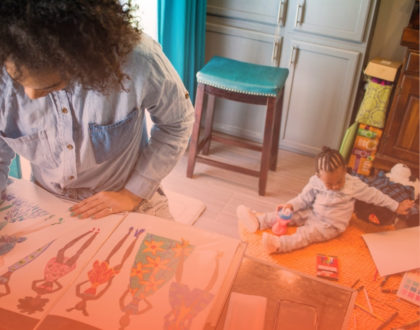Stabilizing a system long broken before the pandemic: Childcare and its impact on women’s careers

Since March of last year 2.3 million women have left the labor force, a number much larger than the 1.8 million men who left in the same amount of time. These job losses have disproportionately impacted women of color as in December alone “Black, Hispanic, and Asian women accounted for all of women’s job losses that month, and 154,000 Black women dropped out of the labor force entirely” according to the Center for American Progress.
It has been well documented that the majority of caretaking responsibilities fall to mothers leaving women to bear the brunt of new caretaking responsibilities which is one explanation for the dramatic exit of women and the emergence of the “she-cession.” The US’s broken childcare system has crumbled under the strain of the pandemic and women’s participation in the workforce is back to 1980’s levels. What does more equitable childcare policy look like moving forward, and how can we help our cities and towns get there?
The system was not set up with primary caregivers in mind.
Even before COVID-19 became a part of our vernaculars the shoestring childcare system in the U.S. was already troubling to some advocates and academics. Hanna Rosin told NPR how its “it’s now painfully obvious that the mass entry of women into the workforce was rigged from the beginning… We should have known it was coming. We basically set women up for failure. The mass entry of women into the workforce was not accompanied by some obvious things, like help in child care or help in balancing all these things that have fallen on women to balance without much cultural change or structural change.”
It is not well known, but the U.S. actually came together to provide universal childcare to those working in factories during World War II. Funded by the Lantham Act which “created a complex patchwork of public and private entities, which in some cases sustained existing centers, and in others allowed communities to set up new ones” according to Lydia Kiesling at the New York Times. Unfortunately when the war ended, so did the funding, eventually leading to a childcare affordability crisis of which we know Massachusetts is a leader in being the state with the most expensive childcare costs in the nation. Within Massachusetts, Boston has highest rates for childcare – creating significant barriers for Massachusetts families to access quality, affordable childcare in their own neighborhoods.
The Coronavirus Relief package passed by Congress in early March included about $40 billion for childcare centers and families in need of childcare. The funding will primarily go to childcare centers hurting as a result of the pandemic. YW Boston was proud to support the Coolidge Corner Theatre’s virtual screening and discussion of groundbreaking documentary Through the Night in January 2021. In the film, Loira Limball follows a 24-hour childcare center in New York and the struggles faced not only by parents searching for childcare but by small childcare providers that make up the majority of the childcare system. These independent childcare centers have been hugely impacted by the pandemic.
An NAEYC survey last summer found that “approximately two out of five respondents—and half of those who are minority-owned businesses—are certain that they will close permanently without additional public assistance” because of the pandemic. Childcare workers are also 2.5 times more likely to be women of color, the closure of childcare centers would also lead to disproportionate job losses for women of color within the industry. The childcare crisis impacts women not only because they have greater caretaking responsibilities in the pandemic, but also because they are more likely to lose their jobs in the fields of caretaking.
Solving this crisis requires attention and action from all of our leaders.
Stabilizing our childcare systems during the midst of the COVID-19 pandemic is of utmost importance. And we have an opportunity now examine a system that was also broken long before the pandemic. Childcare in the United States must work better for parents, providers, and kids themselves. It will not be cheap, and it will not be fast, but it does require our attention from leaders in the public and private sector.
Stabilizing our childcare systems during the midst of the COVID-19 pandemic is of utmost importance. And we have an opportunity now examine a system that was also broken long before the pandemic. Click To TweetThe YW Boston Advocacy Committee has chosen to make childcare a policy priority for the upcoming legislative session because the issue sits squarely at the intersection of race and gender, with women of color being especially harmed by our failures to address this issue. If you are a leader in your organization and wondering how to make your workplace more inclusive for parents during the pandemic you can view YW Boston’s webinar “Making Caregiving Work.”
In the coming months, YW Boston will be releasing our 2021 priority legislation, as well as ways to get involved. For updates on how to take action on key childcare legislation, sign up for our Advocacy Newsletter and join us in creating a more equitable Commonwealth for all.
______
About YW Boston
As the first YWCA in the nation, YW Boston has been at the forefront of advancing equity for over 150 years. Through our DE&I services—InclusionBoston and LeadBoston—as well as our advocacy work and F.Y.R.E. Initiative, we help individuals and organizations change policies, practices, attitudes, and behaviors with a goal of creating more inclusive environments where women, people of color, and especially women of color can succeed.
As part of that work, we are helping organizations prioritize Diversity, Equity & Inclusion and become socially connected while staying physically distant. During this time, YW Boston is providing organizations with digital workshops and resources to help them better understand the challenges faced by their employees. For more information, please contact Sheera Bornstein at sheera@ywboston.org.
